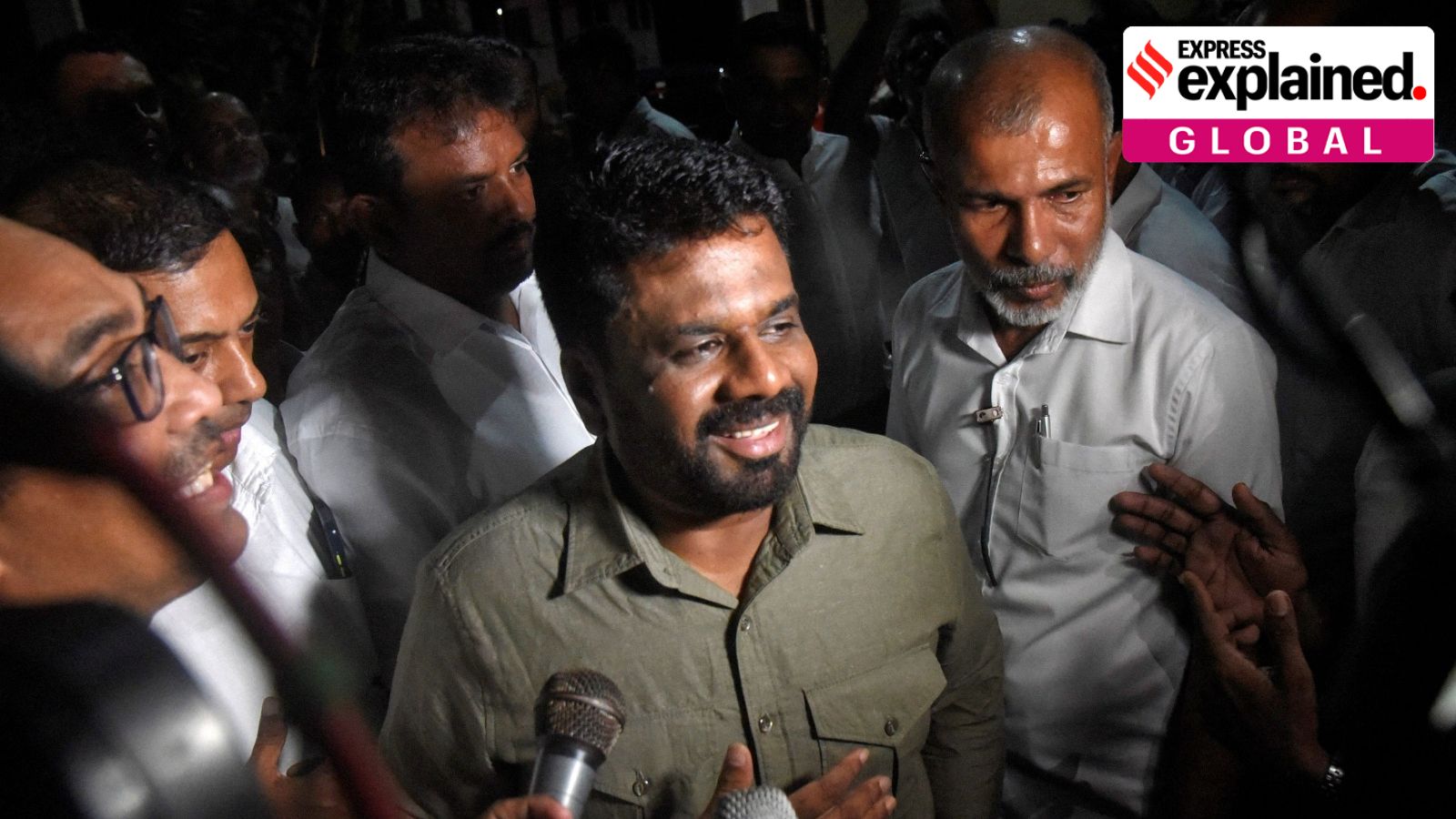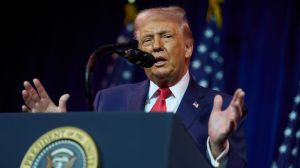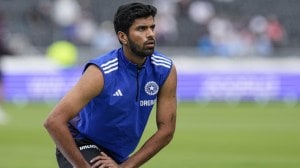Anura Kumara Dissanayake of the Marxist Janatha Vimukthi Peramuna (JVP) party’s broader front, the National People’s Power (NPP), won the Sri Lankan presidential elections and is set to be sworn in on Monday (September 23).
Santosh Jha, the Indian High Commissioner to Sri Lanka, became the first ambassador to meet the Sri Lankan president-elect on Sunday night.

In these elections, Sri Lanka voted for an outright anti-establishment candidate, reflecting the larger anger, frustration and disappointment among voters.
A Marxist member of Parliament from Colombo, Dissanayake, 55, defeated established candidates such as incumbent President Ranil Wickremesinghe, who finished third with just 17 per cent of the votes. Namal Rajapaksa, son of former President Mahinda Rajapaksa, won less than 3 per cent of votes.
The only candidate within touching distance was Sajith Premadasa, son of former President Ranasinghe Premadasa, who won 32 per cent of the votes in the first round. Ultimately, he lost the run-off to Dissanayake.
What Dissanayake’s win tells about the mood in Sri Lanka
The fact that the leftist JVP emerged as a winner for the first time in Sri Lankan history does not come as a surprise. The signs were there for the last two and a half years.
When the country’s economic crisis prompted the collapse of the Gotabaya Rajapaksa presidency, the streets of Sri Lanka gave a clear call for change.
People suffered amid inflation and long queues for essential commodities in July 2022, and mass protests eventually led to Rajapaksa’s fall. But in his place came an experienced hand, in the form of former Prime Minister Ranil Wickremesinghe. He became the President thanks to support from the Rajapaksas, who were fighting for their survival.
Story continues below this ad
Sri Lankans on the streets could see through the revolving door of the Sri Lankan power corridors, where the political elite was essentially playing musical chairs.
But the 2022 ‘Aragalya’ movement — the word meaning “struggle” in Sinhalese — alone did not unseat Gotabaya. Dissanayake’s JVP played a crucial role in mobilising people across the country. The party also thus received significant traction, something it lacked in the past.
When casting his vote, Dissanayake said, “This morning, I cast my vote at the Saikoji Preschool Polling Station, Abeysingharama Temple, Panchikawatta, marking a step forward in our collective journey towards a new era of progress and renewal — Renaissance.” The emphasis on renewal and renaissance is telling.
For Sri Lankans, he is the ultimate anti-establishment candidate — someone who has promised to fight against the political elite that ruled for seven decades.
Story continues below this ad
For India, he has been an unknown entity. In recent months, as Delhi read the tea leaves, South Block reached out to Dissanayake for a visit to India in February this year. He met External Affairs Minister S Jaishankar and National Security Advisor Ajit Doval, among other senior officials. Jaishankar said in a post on X that they had a “good discussion” on bilateral ties.
Challenges ahead for New Delhi
However, some of Dissanayake’s politics and public statements pose a challenge to India’s interests. He has not supported the implementation of the 13th amendment of the Sri Lankan Constitution, which devolves powers to the country’s Tamil minority and has been a long-standing demand of the Indian government.
He has also opposed any investigation into the alleged war crimes committed during the civil war between the Liberation Tigers of Tamil Eelam (LTTE) and Sri Lankan forces.
And, in recent months, he has also spoken about cancelling Adani’s 450 MW wind power project in Sri Lanka if elected, describing the agreement as corrupt and skewed against the country’s interests.
Story continues below this ad
For New Delhi, Dissanayake — who is perceived to have pro-China leanings — is expected to challenge some of the past understandings. Some of those decisions may be unfavourable to India, but it has to nevertheless manage its ties with the incoming government.
It recently achieved this in the Maldives, where a period of strain in bilateral ties, after the election of the pro-China President Mohamed Muizzu, was diplomatically dealt with. As a result, the two countries have more stable relations at present.
An anti-establishment mood has been sweeping across the subcontinent recently — Imran Khan’s PTI won a massive number of seats in Pakistan’s lower house of Parliament, challenging the dominance of Pakistan’s military establishment last year. In Bangladesh, student protests led to the fall of more than 16 years of the Sheikh Hasina government. Sri Lanka, too, is facing its anti-establishment moment.
For Dissanayake, the major challenge will be economic recovery. India’s prompt financial and humanitarian help to the tune of $4 billion in 2022, when Sri Lanka faced its worst economic crisis, has earned it some goodwill. It also helped negotiate a deal with the International Monetary Fund for loans. In dealing with the new president, India’s record of helping its southern neighbour in a time of crisis is expected to come in handy.








































